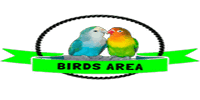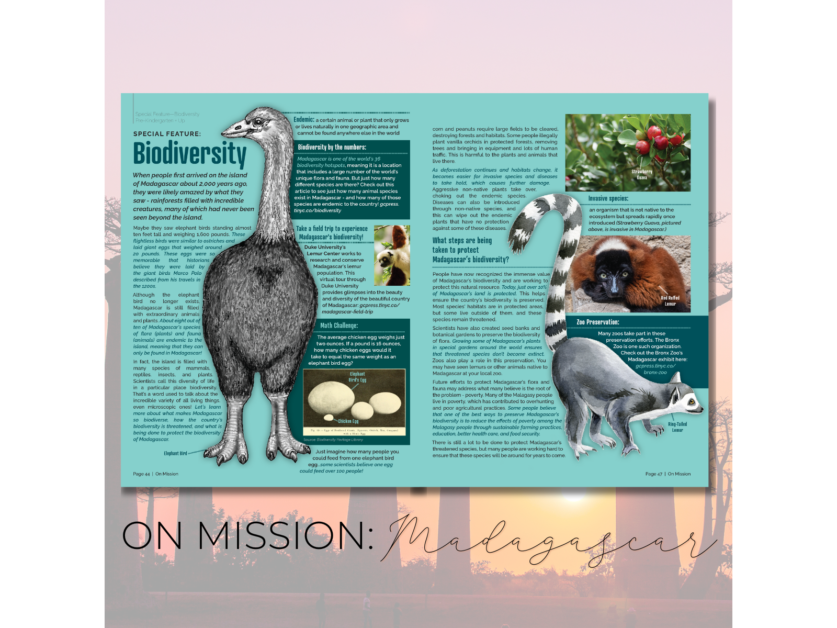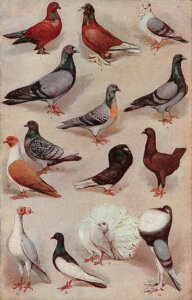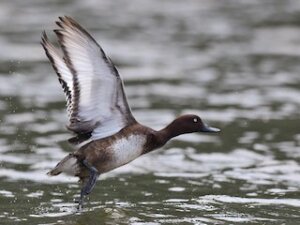Can You Eat Madagascar Pochards Eggs: A Comprehensive Guide
No, you cannot eat Madagascar pochards eggs. These eggs belong to a critically endangered species.
Consuming them is illegal and harmful to their survival. Madagascar pochards are one of the world’s rarest ducks. Their existence is threatened, making their eggs incredibly valuable for conservation. Eating these eggs would further endanger the species. Protecting these birds is crucial.
Learning about their habitat, threats, and conservation efforts helps us understand their importance. This blog will explore why Madagascar pochards are endangered and what can be done to save them. Understanding these aspects can inspire action to protect this unique species. Let’s dive into the fascinating world of Madagascar pochards and discover why their eggs should remain untouched.

Credit: budgetbirders.com
Introduction To Madagascar Pochards
Madagascar Pochards are a critically endangered duck species. Their eggs are not commonly consumed, focusing on their conservation instead.
The Madagascar Pochard is a rare and unique diving duck. This bird is found only in Madagascar. Known for their deep brown color and bright eyes, they are a sight to behold. Despite their beauty, they face many threats. Knowing more about them can help in their conservation.Species Overview
The Madagascar Pochard, scientifically named Aythya innotata, belongs to the duck family. These ducks are medium-sized, with males and females looking quite similar. Key Features: – Color: Rich brown feathers with a white belly. – Size: 45-54 cm in length. – Diet: Aquatic invertebrates and plants. – Habitat: Freshwater lakes and marshes in Madagascar. Their diet mainly includes aquatic plants and small invertebrates. They are excellent divers, often seen diving for food.Conservation Status
The Madagascar Pochard is critically endangered. Less than 100 of these birds exist in the wild. Their numbers have dwindled due to habitat loss and human activity. Main Threats: – Habitat Destruction: Wetlands are being drained for agriculture. – Pollution: Lakes and rivers are becoming polluted. – Predators: Introduced species like rats and cats prey on their eggs. Efforts are underway to save them. Conservation programs focus on habitat restoration and breeding in captivity. Conservation Efforts: – Captive Breeding: Zoos and conservation centers are breeding these ducks. – Habitat Restoration: Efforts to restore and protect wetlands. – Community Awareness: Educating locals about the importance of these birds. Supporting these efforts can make a big difference. Saving the Madagascar Pochard is not just about saving a species. It’s about preserving the unique biodiversity of Madagascar. “`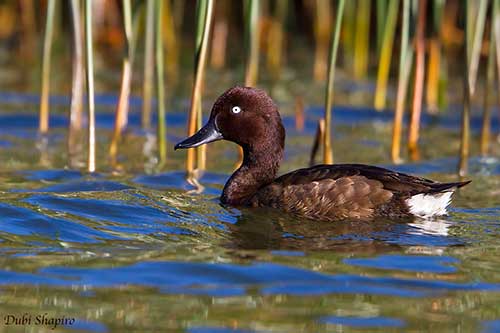
Credit: www.oiseaux-birds.com
Eggs Of Madagascar Pochards
The Madagascar Pochard is a rare species of diving duck. Their eggs are unique and fascinating. This section explores the appearance, characteristics, and nutritional value of these eggs.
Appearance And Characteristics
The eggs of the Madagascar Pochard are oval-shaped. They are usually white or pale cream in color. Each egg measures about 55 mm in length and 40 mm in width. The shell is smooth, not rough.
The eggs are laid in nests close to water. These nests are often hidden among reeds and grasses. The female incubates the eggs for about 27 days. The eggs hatch into fluffy, yellowish ducklings. These ducklings grow fast and start swimming soon after birth.
Nutritional Value
Madagascar Pochard eggs are rich in nutrients. They contain high levels of protein and healthy fats. These nutrients are essential for growth and energy. Below is a table showcasing the average nutritional content per egg:
| Nutrient | Amount per Egg |
|---|---|
| Protein | 6 grams |
| Fat | 5 grams |
| Carbohydrates | 1 gram |
| Calories | 70 kcal |
These eggs also contain vitamins and minerals. They are good sources of Vitamin A, B12, and D. They also provide iron, phosphorus, and selenium. These nutrients support a healthy body and mind.
Legal And Ethical Considerations
Eating Madagascar Pochard eggs involves several important legal and ethical considerations. This section discusses the protection laws and ethical implications associated with consuming these eggs.
Protection Laws
Madagascar Pochards are critically endangered birds. They are protected by international and local laws. The Convention on International Trade in Endangered Species (CITES) lists them under Appendix I. This listing means that trade in these birds or their eggs is strictly regulated. Violating these laws can result in severe penalties. Local laws in Madagascar also protect the Madagascar Pochard. It is illegal to collect or harm their eggs. These laws aim to prevent the extinction of this rare species.
Ethical Implications
Beyond legal issues, there are ethical considerations to ponder. Eating the eggs of an endangered species raises moral questions. Consuming these eggs could lead to their extinction. It is crucial to respect the efforts to conserve these birds. Ethical eating practices involve choosing not to consume endangered species. There are many other sustainable food sources available. By choosing these, you help protect biodiversity.
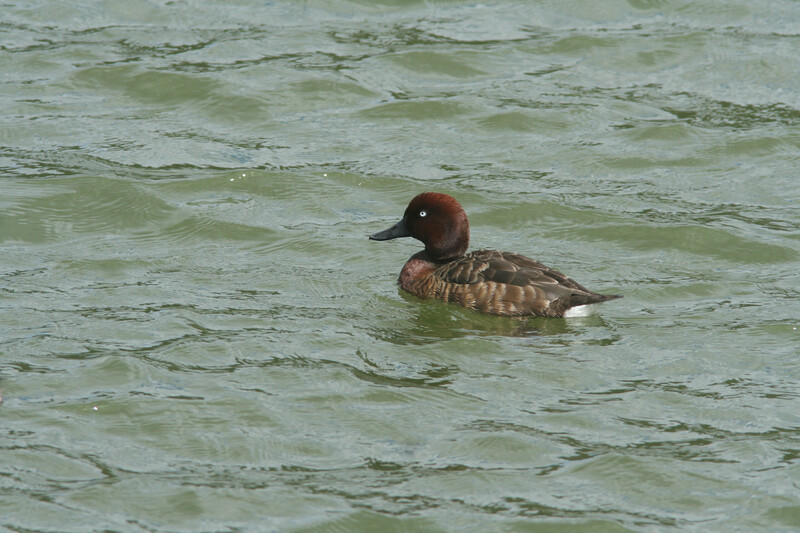
Credit: www.rewild.org
Alternatives And Recommendations
Finding sustainable food options is a growing concern. One question that arises is whether you can eat Madagascar pochard eggs. Given their endangered status, it is vital to consider alternatives and recommendations. This section will explore sustainable egg choices and conservation efforts.
Sustainable Egg Choices
Choosing sustainable eggs helps protect endangered species. Free-range and organic eggs are excellent options. They come from hens raised in humane conditions. These eggs are readily available in most supermarkets. Another option is plant-based egg substitutes. These alternatives are made from ingredients like mung beans. They offer a similar texture and taste to traditional eggs.
Duck and quail eggs are also worth considering. These eggs are often more sustainable than those from endangered species. They can be found at specialty stores and farmers’ markets. Supporting local farms is another way to make sustainable choices. Many small farms prioritize animal welfare and environmental health. This helps ensure a more ethical food system.
Conservation Efforts
Protecting endangered species like the Madagascar pochard is crucial. Conservation programs work to preserve their habitats. They also aim to increase their population. Supporting these efforts is essential. Donations to conservation organizations make a big difference. Volunteering your time can also help.
Raising awareness about endangered species is vital. Sharing information with friends and family can have a positive impact. Educating others helps create a culture of conservation. It encourages people to make more sustainable choices. This collective effort can lead to significant change. By choosing sustainable eggs, you contribute to conservation efforts. You help protect endangered species for future generations.
Frequently Asked Questions
Are Madagascar Pochard Eggs Edible?
Madagascar Pochard eggs are not suitable for human consumption. They belong to an endangered species and should be protected.
Is It Legal To Eat Madagascar Pochard Eggs?
No, it is illegal to eat Madagascar Pochard eggs. They are protected under conservation laws to prevent extinction.
Why Are Madagascar Pochard Eggs Protected?
Madagascar Pochard eggs are protected because the species is critically endangered. Conservation efforts aim to increase their population.
What Do Madagascar Pochard Eggs Look Like?
Madagascar Pochard eggs are oval-shaped and have a smooth, white shell. They are typically found in nests near freshwater lakes.
Conclusion
Eating Madagascar pochard eggs is not recommended. These birds are endangered. Consuming their eggs harms their survival. Protecting wildlife ensures future generations can enjoy their beauty. Choose sustainable and ethical food sources. Respect nature and its inhabitants. Make informed choices to support conservation efforts.
Your actions matter. Let’s preserve our planet’s biodiversity. Every small step counts.
Hello Dear, I'm Poli Kolymnia, owner of many birds (including budgies).
With a deep passion for these feathered companions, I'm here to share my expertise and extensive knowledge on birds care.
My articles cover essential topics like diet, housing, care, and health, providing practical tips to help you create a happy and thriving environment for your birds.
